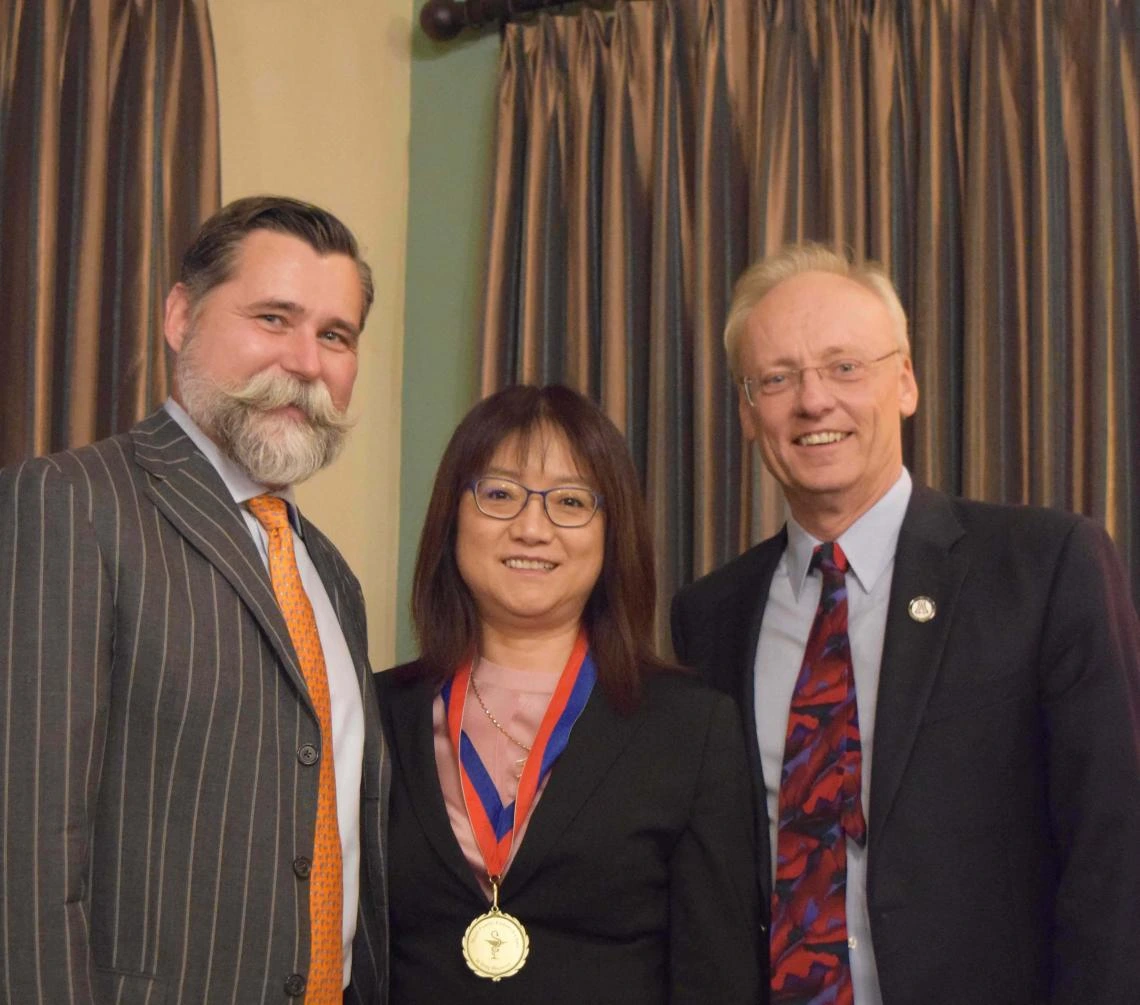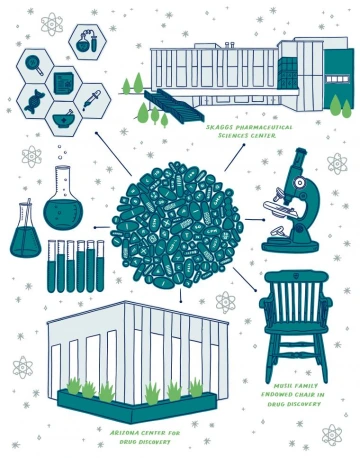Donna Zhang Named Musil Family Endowed Chair for Drug Discovery
Donna Zhang, professor in the Department of Pharmacology and Toxicology at the College of Pharmacy, has been formally vested as the Musil Family Endowed Chair for Drug Discovery.

John Musil ’94 made a gift to create the Musil Family Endowed Chair in Drug Discovery in 2019. The family’s generosity builds on significant momentum the college began with the help of its supporters and collaborators.
The expansion and renovation of one of the college’s homes in Tucson, the Skaggs Pharmaceutical Sciences Center, was complete in spring 2020. With a new addition dedicated to drug discovery, the modernized building will double the college’s research capacity over the next 10 years.
“We didn’t have enough of the right space for years,” Schnellmann said.

The College of Pharmacy also took a major step forward in 2018 by creating the Arizona Center for Drug Discovery, or ACDD, in partnership with collaborators from across the Tucson and Phoenix campuses. The center creates the infrastructure to bring UA researchers from diverse fields together and accelerate their efforts to make new drugs available to patients.
Focused Expertise
Zhang, the recipient of the endowed chair, is an internationally recognized researcher who has spent her career focusing on the transcription factor NRF2, where she has made a number of profound contributions.
She received the prestigious NIH/NIEHS Outstanding New Environmental Health Scientists (ONES) Award, and an American Cancer Society grant shortly after she began at the University of Arizona and has maintained at least two national grants since that time.
Zhang’s NRF2-related investigations have played a central role in unraveling one of the human body’s most remarkable defense systems. Her research has set the foundation for the field, shown evidence of a strategy to alleviate arsenic-promoted diseases, and paved a two-directional therapeutic path using NRF2 inducers to prevent cancer or NRF2 inhibitors to enhance the efficacy of cancer treatment.
Throughout her career, Zhang has published nearly 150 peer-reviewed research papers and review articles in many of the most highly regarded journals.
“I was thrilled to find out that I had been named the Musil Family Endowed Chair for Drug Discovery,” said. Zhang. “My research has always focused on translating mechanistic, laboratory-based findings into novel therapeutic options to treat disease. In this regard, drug discovery, validation, and optimization remains a vital part of achieving this goal, and I am proud to represent a chair position dedicated to not only a particular passion of mine, but also an important aspect of advancing medical science moving forward.”
Zhang is adding to the efforts of other Arizona researchers, who are prepared to go after new opportunities and discoveries as well as continue their work to discover new drugs for cancer and neurodegenerative diseases such as Alzheimer’s.
“There are no therapies for devastating neurodegenerative diseases. We need to do something, so that’s one area we are focusing on,” said College of Pharmacy Dean Rick G. Schnellmann.
A Way Forward at an Opportune Time
A major goal in establishing the ACDD is to help build partnerships with pharmaceutical companies and Arizona researchers. These partnerships enable university researchers to discover new drug targets and lead compounds and help them navigate the rigorous process of taking drugs to market. Corporate sponsorship is key to advancing findings beyond the laboratory and through the stages of clinical trials.
“One of the reasons the university and the college are investing in this area now is that the pharmaceutical industry has created more opportunities for academia at the discovery stage,” said Wei Wang, who joined the college last year as a professor and director of the drug discovery program.
“The bigger companies used to do their own discovery and development. That has changed markedly in the past five years,” Wang said.
However, the process is prolonged and full of risk.
“Starting from scratch, it generally takes at least 10 years to bring a new drug to market, at a cost of at least $1.5 billion,” Wang said.
The university is poised to step up because it has researchers with expertise not only in pharmaceutical sciences but also in chemistry, biology, medicine and fields like biomedical engineering and optical sciences that align closely with drug research. What the university lacked before the ACDD was a systematic way to coordinate their efforts.
“By aligning drug discovery researchers, we can increase synergy, come up with more new ideas, and do a better job in general,” Schnellmann said.
“It’s important to move drug discovery forward, because the need doesn’t stop.”

